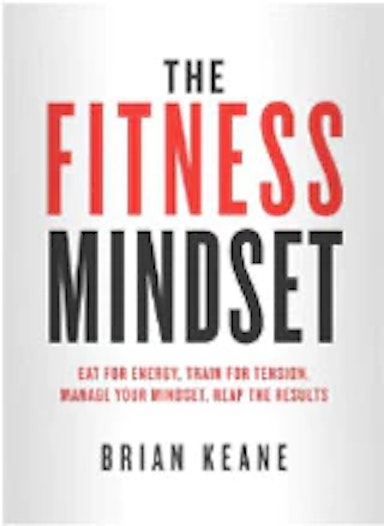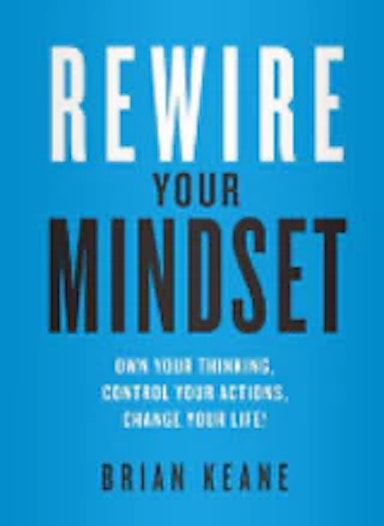What Is The Best Diet For You To Follow?
- By Brian Keane
I’ve been doing a lot of Instagram Story Q+A’s recently and this alongside ‘what are the best foods to eat to lose fat” or some variation of these questions keep coming up; and its also top of mind as it’s a full section in my upcoming full day fitness seminar so I wanted to cover it in today’s blog.
Before I go into the pros and cons of certain diets and finding what one will work best for you, if you’re a regular listener to my podcast, you may be familiar with my nutrition philosophy. That being that the the best diet is the one that fits into your lifestyle and schedule, includes foods that you enjoy is in alignment with your specific goals.
This isn’t going to be a blog post on the comparing the Keto diet vs. Vegan diet or Intermittent Fasting vs. Flexible Dieting. I’ve actually done a full podcast on that topic, which ironically has a similar title to this blog post ‘What Is The Best Diet To Follow?’ – in that episode, I’ve gone through the pros and cons of each of the most popular diets at the minute.
As you’ll see, it’s not a one size fits all ‘do this diet and you’ll lose a load of fat or build a load of muscle’ – its about finding what works best for you and then doubling down on that. If you hate meat or don’t eat it for ethical reasons, then it’s probably a good idea to look into a plant based diet. If you have the biggest sweet tooth in the world and dread going a day or two without chocolate or biscuits, consider flexible dieting or IIFYM (if it fits your macros).
There’s no right or wrong diet as such- there are ones that are more conducive to an end goal or ones that work better for certain people due to lifestyle, schedule, religious or even ethical reasons but that doesn’t necessarily make them right or wrong.
Through years of working with people on their nutrition, I have found that there is a pyramid of priorities when it comes to finding the right diet and sticking to it long term. I’ve found that if you don’t hit all three of these (and in the right order), it’s going to be very difficult to stick to any nutritional strategy over the long term. The three principles are as follows.
- Your diet needs to be in alignment with your goals
- It needs to fit into your lifestyle and schedule
- It includes foods that you enjoy
The reason I put them in this order is because I feel that’s the order of importance.
You can eat foods that you enjoy but if they don’t fit in with your goals, then your body composition probably wont change the way you want it to. Hell, I love chocolate and ice cream but eating too much of it leaves me feeling sluggish, bloated and tired.
Also, you can have a diet that fits into your lifestyle and schedule but again if it doesn’t fit with the end goal, then its hard to stick to it over the long term. Intermittent fasting normally jumps to mind here. One of my closest friends is a top sales person for a US car company. He is a skinny ectomorph (struggles to put on size) and he loves intermittent fasting where he skips breakfast and lunch and just eats dinner and an evening snack. For him, it works perfectly with his busy schedule. We’ve been friends for years and we both know that he needs about 4,000 calories a day just to add size and really needs closer to 5,000 calories per day to really optimise growth but he struggles to eat that many calories in an 8 or worse 4 hour eating window. Think about how much food you would need to consume to get 5,000 calories in one or two meals.
It makes logical sense that f you need to eat that amount of calories, spreading it through the day makes the task more achievable. In this instance, it might be easier to follow a traditional bodybuilding ‘eat every three hours’ rule. Any time my friend really wants to get in shape, he adopts this strategy and other times in the year when his priorities are different (hitting sales targets etc), he does Intermittent Fasting.
Again, you don’t have to follow one diet style forever, you can switch it, mix it up and depending on your life priority right now (starting a new job vs. getting in shape for a holiday), and then you can adjust it accordingly.
I obviously cant cover every single example for every specific goal but I’ve covered it more in a the Nutrition Q+A podcast and will be expanding on it in my full day seminar in December but now that we have the order, lets deconstruct the three principles.
1) A diet that is in alignment with your goals:
This is the bottom of the pyramid and is the piece of information that props everything else up. If you don’t get this right, then every diet is doomed to fail sooner or later.
There’s a million reasons to fall off your diet- work is too busy, you feel stressed out, you have exams, you’re going through a break up, you’re training too hard, the rings aren’t floating around Saturn properly, the ice caps are melting. The list goes on and on.
As a fitness coach, there are two main reasons that I consistently see when it comes to people failing with their diet.
- Lack of progress (normally due to misalignment of goals): or
- Not aligning their nutrition and training program with the end goal.
You can’t hit a target you can’t see and random eating or random training leads to random results. Before you start any nutritional strategy or diet, ask yourself, what’s my end goal? Are you training to lose body fat, build muscle, tone up, get stronger, get fitter, run a half marathon? Or is it a combination of several goals?
If it’s a combination, then the pyramid of prioritisation kicks in again. If you want to lose fat, get stronger and run a half marathon, then you layer it like that.
- Lose fat
- Get stronger
- Run a half marathon
Now you just reverse engineer you nutritional plan that takes those things into account.
You want to lose fat? Great; first thing you need to do is to get into a calorie deficit (i.e. eat less calories than you burn).
You want to get stronger? Perfect, add in some form or resistance, weight or strength training.
You want to run a half marathon? Awesome, start with your base level of runs (i.e. 1km comfortably) and progressively increase that over time and factor it into your training plan.
I’m a firm believer that no physical goal is unrealistic; the time frame might be unrealistic but the goal general isn’t. If you’re three stone overweight right now, you’re probably not going to lose it in a week, but over a few months, it becomes realistic again. As I said in the mind-set section of my book The Fitness Mindset, don’t adjust the goals, adjust the action steps.
Which brings me neatly onto prioritisation #2. Once you know what your end goal is, then it needs to fit with your lifestyle and schedule.
2) Fits into your lifestyle and schedule
If you have a hectic corporate job where you’re on the go 12 hours a day (like my friend above), then eating every 3 hours isn’t a very sustainable plan over the long term. Again it doesn’t matter what kind of nutritional strategy you’re following as long as its in alignment with the end goal but it is worth asking the question “is this realistic for me or am I really going to stick to it?” – for my friend above, its not realistic to eat every three hours a day (unless its for a short term period where he wants to look his best) so he does Intermittent Fasting the other times of the year as it fits into his schedule much better.
If you have to eat out a lot for your job, then a Paleo or Vegan diet might prove as difficult nutritional protocols to follow as not all restaurants cater for it.
The take home message is this. Find a diet that fits into your lifestyle and schedule. Which brings me on to my last point- make sure you include foods that you enjoy.
3) Include foods that you enjoy
The reason this is at the top of the pyramid is that over the short term, if the goal is big enough, you can probably eat anything. When I was prepping for bodybuilding shows and photo-shoots back in the height of my competing days (2014/2015), I would eat chicken, broccoli and rice for weeks on end. Normally as soon as a show or shoot was over, I would binge on ice cream for three or four days. Not exactly the best nutritional strategy to follow but your mess does become your message.
The reason to include foods that you enjoy can be summed up in one word: adherence. In other words, you’re more likely to stick to it.
Most of us have a good idea what foods are ‘good’ for us – i.e. vegetables, fruits, meat, fish, eggs, nuts, seeds etc. but if I tell you to eat three free range organic eggs or porridge, almond milk and honey for breakfast and you hate eggs or porridge, you’re not going to stick to that long term.
I’ve put this one at the top of the pyramid because a lot of you reading are similar to me in the sense that if the goal is big enough (a wedding, an event etc.), you can starve yourself, go on a crash diet or severely restrict what foods you’re eating to look good for that specific date.
I also agree that this type of restriction or strategy will work; and there in lies the problem. If you crash diet, you’ll probably lose weight. If you only eat chicken and broccoli, you’ll probably lose body fat. If you use 10 weight gainer shakes a day, you’ll probably add some size.
The reality is that if these things didn’t work, people would have stopped doing them long ago! My issue isn’t that they work or don’t work, it’s that they’re not sustainable long term. True, you may be in the 0.000001% of people who can eat chicken, rice and broccoli every day for breakfast, lunch and dinner and do that until the day you die, but if you fall outside of that percentile, its probably better to include more foods that you enjoy.
I haven’t gone into massive detail about the best foods to eat as I’ve really expanded on that in the podcast Nutrition FAQ’s podcast. I also haven’t compared the pros and cons of the most popular diets as I’ve done that in the ‘Whats The Best Diet To Follow Podcast’ but thinking about it this morning, I’ve never actually expanded on this particular topic so I wanted to cover it in todays blog.
I’ve linked those episodes above but you can also search them on your favourite podcast app if you prefer.
Episode 163: Whats The Best Diet To Follow
Episode 186: Nutrition FAQ’S
In my upcoming seminar, I’ll be going through this in much more detail so you know how to design your own nutritional strategy based around these three principles. For everyone who already has their tickets, I look forward to meeting you on the day. For everyone else, I hope todays blog post helped.
Full Day Fitness Seminar
Clayton Hotel Dublin
8th December 2018
10am – 5pm
For information on Full Day Fitness Seminar or to get your tickets


